Japanese genres we're missing out on (and some enlightening exceptions)
Import only?
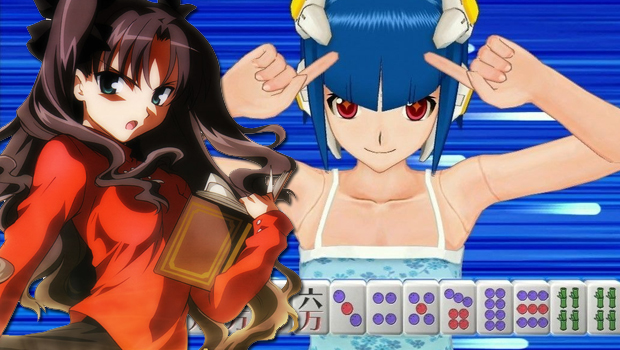
Everything's better in Japan. Food, toilets, and vending machines are all superior; littering, pollution, and crime rates are all down. Even the dirt, it's clean. And, depending on who you ask, Japan gets all the best video games. From platformers to shmups, fighting games to rhythm games, it seems like there's a bevy of incredible experiences that we'll never get in the states. It's gotten to the point where entire genres that thrive overseas seem to have no presence whatsoever on our shores.
So what exactly are you living without? More importantly, how can you try these genres out for yourself? Thanks to niche publishers, localization teams, and a substantial amount of prayer, some of these lesser-known genres have actually wriggled their way into our market, even if they have nowhere near the dominance they do in Japan. Short of learning the language and moving to Tokyo, these games are the best way to get a taste of the genres we're missing out on.
Visual novels
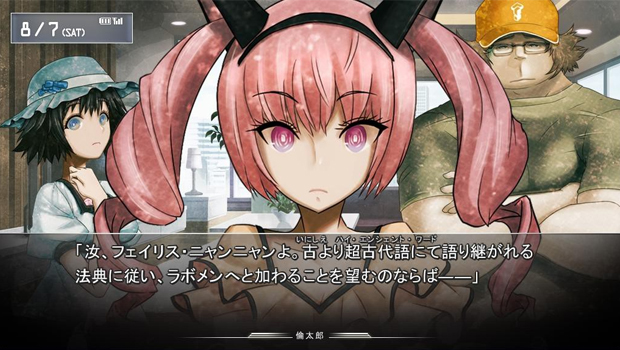
What's this genre all about? If Reading Rainbow taught us anything, it's that books have the power to supercharge the imagination. But sometimes, your abstract interpretations could use a little nudge in the right direction--a character's appearance, the sound of their voice, the splendor of their surroundings. Visual novels take the incredible storytelling, vivid literary imagery, and massive quantities of text from books and convert them into video game form, with static images, minimal voice work, and low-key music added in. There's barely any gameplay to speak of; at most, you'll navigate dialogue trees or choose from branching paths. But the character building is so potent in visual novels that you'll rarely care.
Examples of ones we actually got: Intrepid PC gamers will be able to track down English translations for many of the best Japanese visual novels, but there are great options available even if you're only comfortable with retail releases. 9 Persons 9 Hours 9 Doors for DS is a thrilling, mysterious must. Corpse Party is a chilling scary story, To the Moon is an emotional tear-jerker, and Analogue: A Hate Story offers cerebral sci-fi.
Doujin fighters
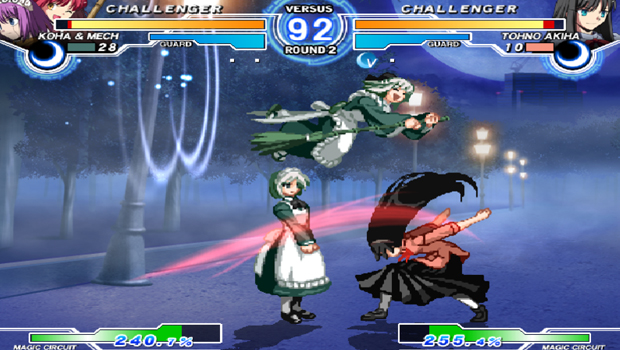
What's this genre all about? Americans have this bad habit of suing each other into oblivion. If you even think about drawing a silhouette of Mickey Mouse on a piece of scrap paper, Disney will bury you under a mountain of litigation. But in Japan, there seems to be a lot more leeway with fan-made homages--including games that revolve around the unauthorized use of existing characters. Doujin fighters are one of the more popular variants of these indie projects, and they're usually quite impressive. For instance, 2D fighters like Melty Blood and Vanguard Princess achieve a level of excellence typical of full retail releases, despite being made by small teams of fans just for fun.
Examples of ones we actually got: With American fan games, there's always the danger of getting slammed with a cease-and-desist, a fate that befell the promising My Little Pony: Fighting Is Magic. On the other hand, League of Fighters, the 2D brawler starring LoL champions, has the go-ahead from Riot Games. And PS Vita owners should keep tabs on Legend of Raven, a port of the indie fighter Yatagarasu made by ex-SNK devs.
Tactical card-based strategy
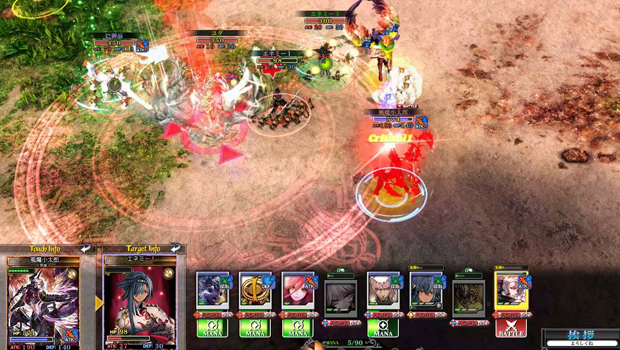
What's this genre all about? Collectible card games have always been popular with our crowd; Magic the Gathering, the Pokmon TCG, and Konami's own Yu-Gi-Oh are still thriving in local game stores, and intriguing new CCGs are always cropping up on Kickstarter and the like. Typically, battles in card games take place purely in the mind's eye. But in Japanese arcades, those cards can come to life with games like Lord of Vermilion, which let you summon creatures to a virtual battlefield by placing cards on a special plate (not unlike Skylanders toys). Even crazier, you'll need to position the cards in real time to angle their attacks. It's a crazy mash-up of card game collectibility and the frantic pace of an RTS, and we wish we were playing it right now.
Weekly digests, tales from the communities you love, and more
Examples of ones we actually got: If you were an early adopter of the PlayStation Eye, The Eye of Judgment was the go-to game to impress your friends. Sure, battles took place on a turn-based grid instead of an expansive battlefield, but it was still awesome to cast in-game creatures using pieces of real-life cardboard.
Dating sims
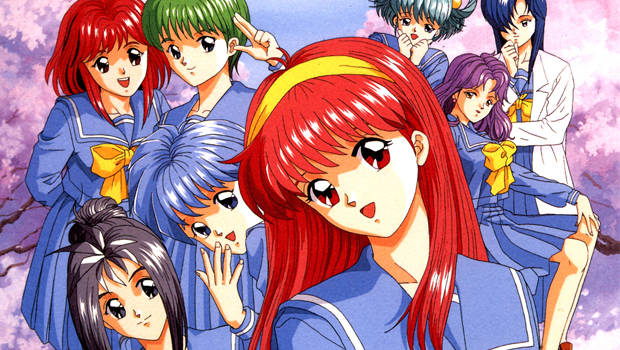
What's this genre all about? You might not want to admit it, but you've probably enjoyed a dating sim already. Think about it: Any BioWare-made RPG romance or GTA girlfriend is essentially you, the player, repeatedly pursuing the virtual object of your affection until they respond (usually by having sex with you). That's pretty much the dating sim phenomenon in a nutshell, though they can make you just as emotionally invested as any gripping movie or TV show might. Usually, gameplay boils down to life management, running errands in between dates and conversations with potential mates. And no, not all dating sims end in pornography, whether you want them to or not (see: Tokimeki Memorial).
Examples of ones we actually got: For many, romance is actually the most interesting aspect of EA's The Sims franchise, which is in many ways a dating sim without all the dialogue. As we mentioned, many RPGs revolve around dating; Fire Emblem: Awakening for the 3DS is another outstanding example. You can also try to track down the cult classic Sakura Wars games, which are part romance, part mech battles.
Quiz games
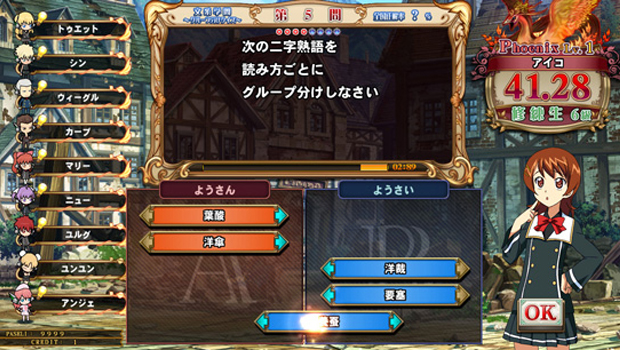
What's this genre all about? Context is everything. Tell a youngster that you're giving them a pop quiz, and they'll let out a world-weary groan. But present them with a glitzy arcade machine that revolves around quizzes, and they'll be utterly delighted. Uh, maybe--but dammit, we would be delighted. Quiz games are exactly what they sound like--a series of multiple choice trivia questions, usually tied to a goofy in-game premise. Get questions right, and your anime avatar cheers you on. These oddities were much more popular in the '80s and '90s, but recent series like Quiz Magic Academy can still be spotted in many a Japanese arcade.
Examples of ones we actually got: If you don't speak Japanese fluently, there's basically no hope of playing one of theseunless you manage to track down the incredible Quiz & Dragons, a true Capcom classic. This is a cheesy dungeon crawler / board game hybrid that revolves around insanely outdated (and sometimes flat-out incorrect) trivia. But play it with a buddy (possibly while intoxicated), and we guarantee a good time. Pro tip: Pick the Ninja.
Mahjong
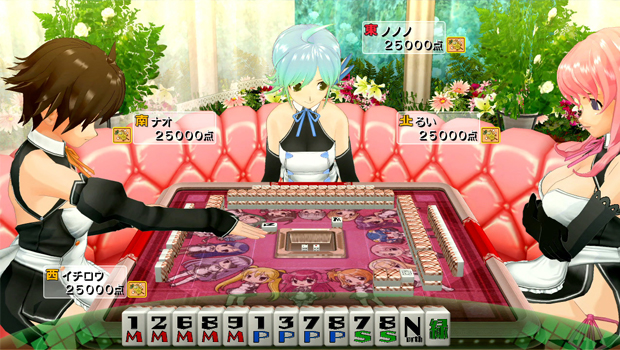
What's this genre all about? There are two varieties of Mahjong: the kind you've played a million times as DOS / in-browser freeware, and actual Mahjong. The former goes by many names--Mahjong solitaire, Shanghai, Taipei--but that silly match-two-tiles gameplay has nothing on the real deal. Legit Mahjong involves four players, and combines the complex screw-your-opponents-over strategy of Gin Rummy with the satisfying tile slamming of Dominoes. Mahjong games have become a staple in the Japanese game market, occupying the space between "shovelware" and "expected product." And believe us, it can get pretty intense--just watch the anime Saki for proof.
Examples of ones we actually got: Slim pickings doesn't even begin to cover it when it comes to true Mahjong games for English speakers. Your best bet is FunTown Mahjong on Xbox Live Arcade, which looks butt-ugly but has it where it counts: gameplay. If you're looking for a throwback to the days of DOS, see if you can track down Hong Kong Mahjong Pro, published by none other than Electronic Arts.
Keep fighting the good fight
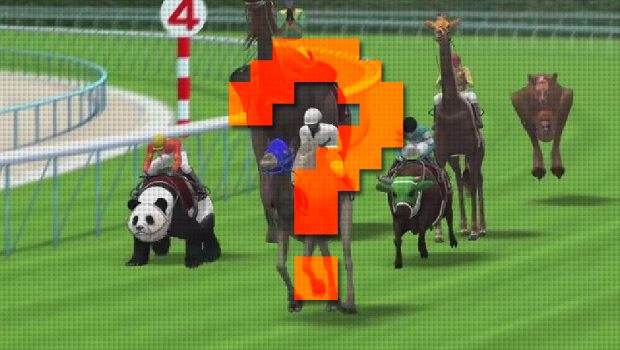
Any other wacky Japanese genres we're being deprived of? Perhaps you're a hardcore fan of horse racing, and bemoan our market's dreadful lack of jockey games (like the utterly bizarre Japan World Cup 3, pictured above). Tell us in the comments which genres you want to see localized more often, and which games would be the best fit for newcomers!
And if you're looking for more, check out 6 trends we noticed from Tokyo Game Show 2013 and The Top 7 Things we'll always associate with the seventh console generation.
Lucas Sullivan is the former US Managing Editor of GamesRadar+. Lucas spent seven years working for GR, starting as an Associate Editor in 2012 before climbing the ranks. He left us in 2019 to pursue a career path on the other side of the fence, joining 2K Games as a Global Content Manager. Lucas doesn't get to write about games like Borderlands and Mafia anymore, but he does get to help make and market them.



